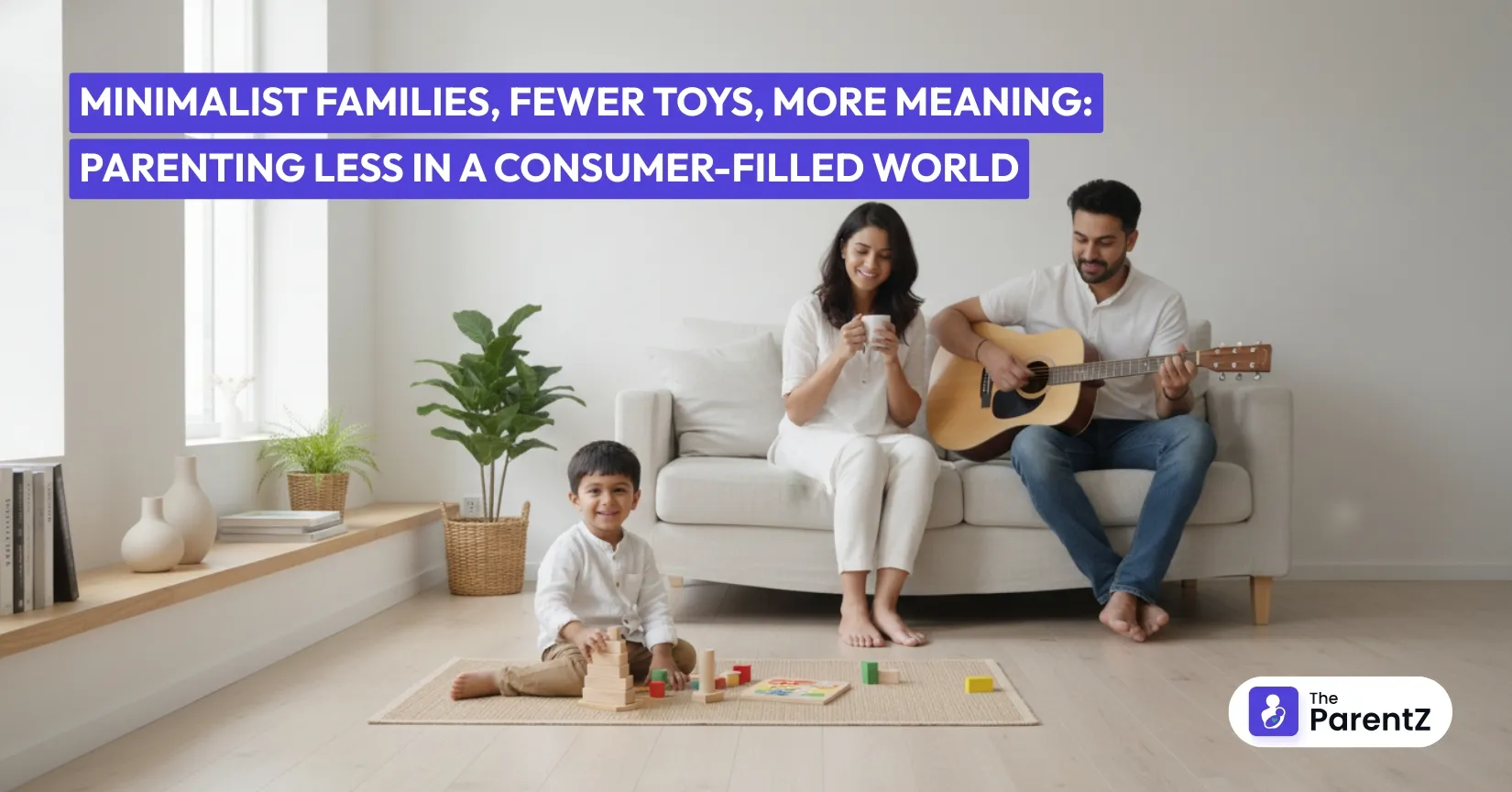If you’re a parent today, it’s almost impossible to escape the constant rush to buy more. Everywhere you look, you see ads, social media, and even other parents, and it feels like there’s always some new must-have toy, gadget, or activity. From birthdays to random weekends, shopping and gifting seem to have become the main way of showing love. But deep down, many parents are tired of it because with every toy added to the basket, life feels a little fuller, but not in a peaceful way.
Parenting in a world that pushes consumption at every step is not easy. The pressure is real. You don’t want your child to feel left out, yet you also don’t want your home (and your mind) buried under piles of plastic. That’s where minimalist parenting comes in, not as some strict rulebook, but as a gentler way to bring back meaning, calm, and connection.
Why Modern Families Feel Overwhelmed
Most parents don’t set out to raise children surrounded by stuff. It happens gradually. One extra toy to reward good behavior. Another one from grandparents, “just because.” Before you realize it, every corner of your home screams chaos. And yet, the child still asks for more. That’s because today’s world teaches kids (and parents) that happiness comes from owning things. But the feeling fades quickly. Toys that once felt exciting soon lie forgotten in a pile, replaced by the next new thing.
As adults, we know stuff doesn’t equal satisfaction, but it’s still hard to say no. Between busy lives and constant social comparison, it’s easier to buy than to pause. Minimalist parenting turns that around. It teaches families to choose intentionally what really matters (time, connection, creativity, and calm).
What Minimalist Parenting Really Means
Minimalism doesn’t mean taking away everything or making your home feel empty. It simply means focusing on what truly adds value to your family’s life.
It’s about asking small but honest questions:
- Does my child really need this toy, or does it just fill a moment?
- Will this purchase support learning, imagination, or connection, or is it just another distraction?
- Do we spend time together because we want to, or because we’ve run out of things to buy?
Once you start seeing the pattern, the idea of “parenting less” makes sense. It’s not about neglect; it’s about saying no to unnecessary noise.
Need vs. Overconsumption
There’s a clear difference between need and overconsumption. A need supports your family’s physical or emotional well-being. Overconsumption, on the other hand, is when you buy out of habit, guilt, or pressure.
For example:
- A need: a simple set of building blocks that your child uses often.
- Overconsumption: buying five similar sets because they look cute online.
- A need: a warm sweater for winter.
- Overconsumption: three more in different colors because they were on discount.
Recognizing this difference helps children, too. When they see parents make mindful choices, they learn that satisfaction comes from use, not number.
Small Steps That Actually Work at Home
Parenting less in a consumer-filled world doesn’t happen overnight. But small, steady changes can transform your home and mindset.
- Rotate toys instead of buying new ones: Keep a few toys in the basket and store the rest. Every few weeks, swap them. Children feel the joy of “newness” again without actually buying more.
- Plan “no-buy” days: Pick one weekend a month where the family avoids buying anything except essentials. Use that time for free experiences like park visits, board games, or cooking together.
- Involve children in decluttering: Ask them to pick toys they no longer use and donate them. It teaches empathy and helps them understand value beyond ownership.
- Focus on experiences: Instead of another toy, gift memories, like a picnic, craft day, or sleepover. Kids remember laughter far longer than plastic toys.
- Set boundaries for gifting: Let family and friends know your values. Ask them to gift books, puzzles, or experiences instead of random toys. Many will actually appreciate the clarity.
- Be kind to yourself: Minimalist parenting isn’t about perfection. Some days you’ll give in. That’s okay. What matters is the awareness and the effort to bring back balance.
Conclusion
Reducing the number of toys or clothes isn’t just about space; it’s about mental peace. When children have fewer things, they explore more deeply. They use imagination. They value what they have. And you get to breathe easier because it also leads to fewer arguments about cleaning, fewer random purchases, and more time to actually be together.





Be the first one to comment on this story.